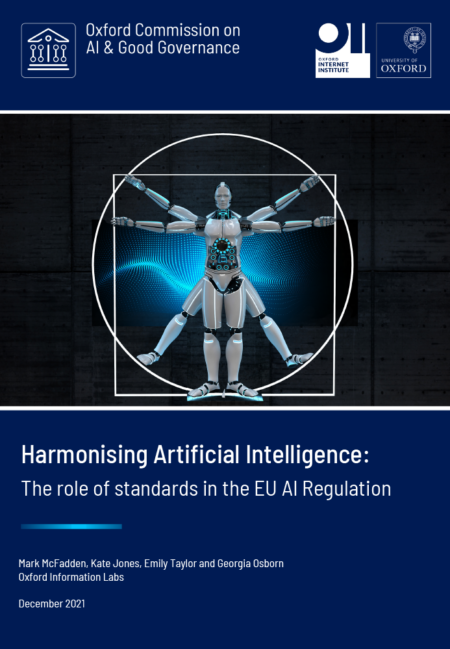

The draft EU AI Regulation is a far-reaching attempt to provide a regulatory foundation for the safe, fair, and innovative development of Artificial Intelligence in the European Union and is likely to have consequences across the globe. An important feature of the draft Regulation is its use of technical standards. However, standardisation is complicated and the nexus between standards and the European Commission’s goals is a challenging intersection of stakeholders, economic interests, and established standards development organizations. The EU is reconsidering its model for standardisation and is in the process of gathering input to a revised approach to European standardisation.
OXIL’s paper for OxCAIGG Harmonising Artificial Intelligence: The Role of Standards in the EU AI Regulation, authored by Mark McFadden, Kate Jones, Emily Taylor and Georgia Osborn, focuses on the role that the draft Regulation gives to standards for AI. Specifically, conformance with harmonised standards will create a presumption of conformity for high-risk AI applications and services – lending a level of confidence that they are in compliance with the onerous and complex requirements of the proposed Regulation and creating strong incentives for industry to comply with European standards.
Cite as: Written by Mark McFadden, Kate Jones, Emily Taylor and Georgia Osborn, Oxford Information Labs (2021). Harmonising Artificial Intelligence. Working paper 2021.5, Oxford, UK: Oxford Commission on AI & Good Governance. 43pp.
Details
December 2021
Oxford Commission on AI and Good Governance
